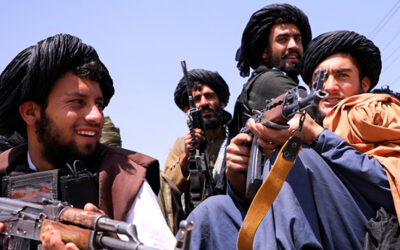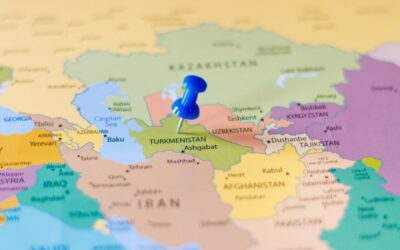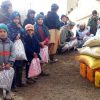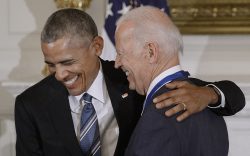
Ensuring the Safekeeping of Records from the Afghan Women’s Movement
11 April 2024
Women’s rights activists from Afghanistan and Iran underscored the importance of unity in recognizing gender discrimination in a joint virtual meeting. Masih Alinejad, a prominent opponent of the Iranian government, highlighted the solidarity between Iranian and Afghanistan women in opposing the Taliban and the Islamic Republic’s “gender apartheid” policies.
The collaborative gathering of women’s rights activists from Afghanistan and Iran has elicited significant responses. Many commend the alignment between the two nations in acknowledging gender apartheid and pursuing legal action on the international stage. However, there are concerns raised about safeguarding the longstanding struggles of Afghan women from being overshadowed. Supporters of the joint efforts between Afghan and Iranian women argue that influential figures like Masih Alinejad possess global recognition and can play a crucial role in advancing women’s rights, particularly in shedding light on the plight of Afghan women worldwide.
The consensus among these individuals is that the international community pays more attention to the voices of Iranian women. This is because Western countries have no good rapport with the Islamic Republic and seek dissenting voices to exert pressure on Tehran. The Exceptional Circumstances of Afghan Women Opponents of the alignment between Iranian and Afghan women believe that the conditions of women in the two countries are vastly different. Iranian women enjoy basic social rights and struggle for “equality.” Their demands mainly revolve around issues such as blood money, dowry, right to divorce, optional hijab, and child custody rights.
Over half of Iranian university students are female, reflecting significant female participation in social, educational, and cultural spheres. However, governmental institutions maintain distinct criteria for women’s involvement, necessitating adherence to the Islamic Republic’s patriarchal framework. Critics of collaborative efforts between Iranian and Afghan women argue that the unique challenges Afghan women face defy comparison globally. They caution that joint advocacy may inadvertently equate the vastly different circumstances of Afghan and Iranian women, potentially undermining the urgent needs of Afghan women.
After the Taliban regained control of Afghanistan, they completely removed women from the public scene. The main actions of the Taliban against women are banning education above the sixth grade, closing public and private universities, and prohibiting women from working in government offices and all non-government offices.
The Taliban’s imposition of stringent measures extends to the closure of women’s beauty shops, prohibition of female access to public spaces such as parks, stadiums, and recreation centers, as well as restrictions on utilizing women’s bathrooms. Moreover, women face limitations when traveling long distances without the accompaniment of a male guardian, known as a Muharram. This systematic suppression of women’s rights has led to growing concerns, particularly among Iranian and Afghan women, regarding the institutionalization of gender apartheid. In response to the Taliban’s oppressive policies and persistent advocacy efforts by Afghan women spanning three years, human rights organizations have mobilized to address the urgent need for the acknowledgment of gender apartheid. The International Federation of Human Rights recently reinforced this call by passing a resolution, citing the plight of Afghan girls and women as symbolic of gender apartheid. The discourse surrounding gender apartheid, though longstanding, has gained renewed urgency in light of ongoing violations of women’s rights.
By international law, apartheid is unequivocally recognized as a crime against humanity. However, when it comes to the concept of “gender apartheid,” there exist ambiguities within international legal frameworks. Human and women’s rights activists contend that the plight of Afghan women serves as a glaring illustration of gender apartheid and warrants unequivocal condemnation and criminalization within international law.
While gender apartheid remains unprecedented in Iran, current Afghan women’s rights advocates assert that the litigation efforts of Afghan women have catalyzed the recognition of gender apartheid in international forums. Afghan women have made significant sacrifices in their quest to reclaim basic rights, elevating the discourse on gender apartheid within the legal and research literature of the United Nations. However, some women’s rights activists caution against the appropriation of Afghan women’s struggles and sacrifices by figures like Masih Alinejad. Additionally, an Afghan social activist highlights concerns over the political exploitation of the women’s rights issue, particularly with Iran’s involvement, which risks diverting attention from the core objectives. This intrusion of political-security dynamics by Iranian activists may obfuscate the primary focus on advancing women’s rights.
The involvement of Iran in advocating for women’s rights risks politicizing and securitizing the issue, straying from its core objectives. Afghan women primarily focus on attaining fundamental human and social rights within their country. The recognition of gender apartheid would mark a significant historical milestone for Afghan women. However, the collaboration between Afghan and Iranian women could amplify this achievement. Yet, there’s a risk that any recognition of gender apartheid may disproportionately attribute credit to figures like Masih Alinejad and other prominent Iranian activists, overshadowing the collective efforts of Afghan women.
Narges Mohammadi, an esteemed Iranian human rights activist, was rightfully awarded the Nobel Peace Prize. Meanwhile, Afghan women have spearheaded an unprecedented civil and political movement in the region over the past three years. They courageously resisted the Taliban’s resurgence, enduring physical assaults and imprisonment, including instances of rape. Their resilience symbolizes a profound struggle for justice and freedom. The discourse on women’s rights extends beyond education alone. While Iranian feminists and Nobel laureate Malala Yousafzai advocate for gender equality, Malala’s emphasis is predominantly on the imperative of education for girls. Speaking at the 21st annual Nelson Mandela Foundation gathering in South Africa, Malala unequivocally condemned the Taliban’s actions as constituting “gender apartheid,” asserting that their oppressive policies effectively criminalize girlhood. Her poignant remarks underscore the urgent need to confront systemic gender-based injustices perpetrated by extremist regimes like the Taliban.
The Malala Yousafzai Foundation is actively engaged in efforts to reopen schools and universities for Afghan women and girls, recognizing the vital role of education in empowering them. However, it’s crucial to acknowledge that Afghan women’s challenges extend beyond education alone. They aspire for comprehensive political, social, and economic inclusion within their society. Amidst these endeavors, individuals or groups are seeking to exploit the plight of Afghan women for personal gain. In response, civil activists in Afghanistan must unite in a concerted effort to advance the realization of women’s rights and broader societal goals. By standing together, they can amplify their voices and effect meaningful change, ensuring Afghan women’s aspirations for equality and empowerment are met with genuine solidarity and action.
there is not post in layout 2
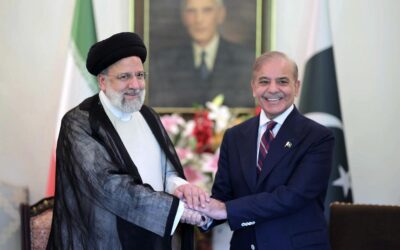
Pakistani and Iranian Leaders Commit to Strengthen Cooperation in Combating Militancy Originating from Afghanistan
Pakistan and Iran, neighboring nations with a lengthy and permeable...




